- Home
- Rose Tremain
The Darkness of Wallis Simpson Page 2
The Darkness of Wallis Simpson Read online
Page 2
The aproned girl is going round the room, tidying what already looks tidy enough. She, at least, thinks Wallis, has the decency not to stare at me while I’m trying to piss. The companion is shameless, though. She’s stroking my hand, kissing my hair, and all while I’m sitting on the fucking pan.
‘Go away,’ she says.
The woman-man looks so hurt for a moment, it’s like something stabbed her in the heart. But she doesn’t back off, just carries on with her stroking and kissing and now more French: ‘Oui, ma Duchesse, oui, oui. Mais tu sais que tu ne comprends rien. Je suis la seule qui est là pour toi. . .’
‘Oh for Christ’s sake!’ says Wallis, trying to push the companion away.
But she’s too weak to push her away and now the man-woman is furious. ‘Don’t say that!’ she snaps. Then grabs Wallis’s hand and slaps it. A nasty little stinging slap, like you might give to a dog. ‘Or I’ll take the pan away and you can lie in a wet bed. Do you want to lie in a wet bed?’
Kissing her one minute, hitting her the next. A person out of a nightmare. There’s no talking to such a creature. Wallis can say words today, but why should she? Why should she waste her precious breath talking to this hag?
She turns her face away. Sees the girl in the apron staring at her with such a sad pitying look, it makes her weep. Fuck all these people. Piss in the damned pan and be done with them. Have them draw the curtains again. Go back to darkness.
She empties her bladder. Tells them she’s done. Between them, the girl and the companion lift her again and the companion, not the girl, presses a tissue between her legs to wipe her. Kisses her cheek as she does this, fuck her. Who is she to take such liberties?
Yet she remembers this, suddenly: the touch of a girl.
God, so long ago.
When?
Lying under stars. A coal brazier to warm them. Somehow exquisite, the burning brazier and the icy sky.
In China. With Katherine. Katherine who died. Her beautiful friend, Kitty.
Kissing each other, mouth on mouth, on a silken bed on the ground. Or was it something she dreamed? Was it something she wanted to do and never did? God knows.
The room is filled with light as Wallis tries to eat some breakfast: melba toast with butter, lemon tea, a slice of white peach. At least food like this still arrives in front of her, served on bone china so fine you can see light through it. The tea strainer is still silver. Imprinted on the butter is a pattern of acorns and leaves. The kitchen has taken trouble. But she feels she should be sharing her meal with someone. Sharing it with whom? All she can remember is the feel of an eager mouth, eating from her hand.
From her hand?
She knows her brain’s gotten all twisted up. That’s what they mean by gaga. It’s like a fog came down. She can recall the Great Fog in London in 1934 or 1935: men walking in front of buses, waving red flags; people coughing and dying; dirt on the wainscot. She can remember staring at the fog out of the window of her pale-green drawing room at Bryanston Court, and thinking how far she’d come from Preston Street, Baltimore, and how here in London she’d at last preside over a ‘dazzling table’. She can remember buying candles in Harrods, glassware in Goodes. She can remember the butcher’s boy, arriving on his bicycle, with the choice cuts she’d ordered on the telephone. And she can remember her husband, her second husband, Ernest Simpson. The way he always looked too big and wide for his suits. The nice habit he had of draping his heavy arm round her thin shoulders, to warm her, to keep her safe. The smell of his pipe. His man’s laugh, throaty and loud. She can remember dancing with Ernest in some smart club or other. ‘Isn’t this just grand, what?’ A striped taffeta dress. Champagne in shallow glasses. Air thick with smoke. Tea for Two.
But was he still there that day when she was looking out at the fog? Because, after that day, she’s honestly got no memory of him any more. Did he die? Is there a grave in England she should visit? If so, somebody should darn well tell her. Ernest Simpson was a nice man.
Her breakfast tray’s taken away and Wallis lies there and stares at her room. The furniture looks familiar, though she couldn’t say from where. It just looks as if it could belong to her. Someone has arranged lilies in a tall vase. The silk drapes (Ernest always called them ‘curtains’) are a restful blue, the kind of colour she might have chosen. On the dressing table is a collection of perfume bottles – or what Ernest said should be called ‘scent bottles’, because perfume was a ‘common’ word. Ernest was helpful like this. He taught his American wife a lot about England and its little rigid ways. But these bottles look empty, as though the ‘scent’ in them went stale and was tipped down the john. Or else it was used up. Who knows?
Wallis turns her head and sees, on her night table, a large photograph in a silver frame. It’s a picture of a young man. Who’s put it there and why? Because for heaven’s sake, the poor boy in the picture appears perfectly miserable! And this makes her smile, and really it is quite amusing how woebegone he seems. He can’t be more than twenty-three. Youth should be a golden time. The boy in the photograph has some golden features, smooth skin, pale hair, ears snug to his head, but the anguish in his eyes! Heavens-to-betsy (as old Baltimore people used to say) what a world-weary look. It could make a girl depressed, when she’d got over laughing.
The companion comes in again. She always comes in, uninvited, without knocking, like she was once a butler.
‘Who’s this?’ Wallis asks her, pointing at the photograph.
The companion purses her lips, says: ‘Wallisse, you know that I refuse to answer such a stupid question. And I am getting very tired with your games.’
Games? Oh, if only there were games to play. Wouldn’t that be wonderful? English country house games like hide-and-seek and croquet and sardines. Beautiful, terrifying, American games like poker. Mad, disreputable games in the evening, with borrowed wigs and men’s clothes and a feeling of wanting to kiss people or bite their noses, or tell them you loved them. You could never get enough of games. They made life bearable. Now, there’s no one left to play.
‘You see this?’ asks the companion, opening a large leather box. ‘You remember what this is?’
‘Yes,’ says Wallis. Because she does, she remembers the smell of it, that leather smell. But she has no idea what’s inside.
‘So,’ says the companion, ‘I ’ave not let you look at these objects for a little while, because the last time I showed them you were very naughty. Very, very naughty, Wallisse. But I think today is a good day. N’est-ce pas? I think today you are going to be sensible and tell me exactly what they are.’
OK, so the hag’s gotten her intrigued for once.
‘It better be good,’ says Wallis.
‘It is good,’ says the companion, but where Wallis looks for a smile, there is none.
She opens the box. Removes a little flat cushion. She places the box on Wallis’s lap. The weight of it’s more painful than a meal tray.
Wallis peers into it. Laid out on pale chamois is a quantity of jewellery. In the morning light of the room she can see diamonds shining.
‘Voilà,’ says the companion. ‘Voilà, ma Duchesse.’
Wallis’s eyesight can’t cope with intricate things any more. She could see the acorns on the butter – probably because, if you know something’s there, you can see it better. But all these stones, these shapes blur into a snow-blind mass. Where are her spectacles?
‘Et bien?’ says the companion.
To please the woman-man, not wanting to get her wrist slapped, Wallis nods, as though to say she understands why she’s being shown all this, understands what’s expected of her. But she can’t see the darn stuff properly. What can she do, if she can’t get anything in focus?
She feels her wrist being lifted, this marmoset’s little limb, and then round the wrist is placed a heavy bracelet made up of . . . what? A glint of red. A sparkle of ice. Diamonds and rubies.
‘Now,’ says the companion. ‘This you remember. I know you d
o.’
Rubies bright as blood, but staunched and contained, the blood kept from spilling by the hard bandage of diamonds. There’s something beautiful about the arrangement of this, Wallis admits. She didn’t see it a moment ago, but oh boy, there is. This one piece, taken out of the box, released from being with the rest, is a fabulous thing.
The companion’s smiling approvingly. ‘Ah, I see it in your face,’ she says. ‘It’s come back to you, hasn’t it?’
With her other hand, Wallis touches the bracelet, runs her finger round it, touch helping vision. She sees it bright and clear: the rubies crammed together in square clusters, ten or more to each cluster. The square-cut diamonds separating them and yet locking them in . . .
She’s lost in it. She’s AWOL in the bracelet.
Who made it? Whose mind saw this lovely symmetry? Shame you couldn’t crunch it, munch it, grind your teeth on it till they ached, take its essence into you, get its mineral power into your lungs, into your liver, let it break up all the old sad flesh and clothe it with new.
She’d like to be left alone with these gems. Her teeth are brittle and not all her own, yet she’d still like to bite on this bracelet like a dog bites on a bone, like a baby bites on a teething ring. She wants to ask the interfering hag to leave, but words have gotten jumbled again, she can sense this. Nothing will come out right.
‘Very well,’ coos the hag. ‘Now tell me what is inscribed on the clasp of this bracelet.’
Another of her tests. Another of her ways to spoil any fleeting moment of pleasure.
Wallis refuses to let a syllable of anything in any language come from her mouth. She lies down with her head on the pillow, cradling the bracelet. The jewel box falls on to the floor.
‘Wallisse! Mon dieu!’
She’ll probably be slapped now, but she doesn’t care. She’s got the bracelet.
‘Wallisse! Talk to me. Don’t pretend any more. Pretence is so ungrateful! He gave up an Empire for you. An Empire! And you pretend to remember nothing. But I ’ave sworn to myself I shall not rest, I shall not return to my legal practice nor go again into the world until you admit to me that you do remember. For, somewhere in you, you do. So now tell me please: there are two words inscribed on the bracelet and you will say what they are or I am going to ’ave to punish you. I am going to punish you very badly.’
The bracelet’s pressed against Wallis’s mouth. Who cares what words are inscribed on the fucking bracelet? It’s the thing itself that’s lovely, not the words. She lives in darkness most of the time, a ghost trapped in an old TV, but now the companion’s given her something beautiful and she’s damn well going to hang on to it.
But the hag won’t leave her alone. There’s murder in her voice.
‘I never thought you would be so obstinate. You are a mule! I dare not tell anybody what a crime you are committing. I’m too ashamed.’
Ashamed.
Wallis knows what this word means. The shame of things. Being told by her mother: ‘Bessie, I can’t afford that school uniform, darlin’. But, see, I’m handy with the sewing machine. Make you one so good, nobody will tell the difference.’ Except she always knew. Knew it was different. There was no store label in it. The pleats didn’t fall perfectly right. The shame of those imperfect pleats.
‘Two words!’ says the murdering hag. ‘Now tell me what they are!’
Two words. What could they possibly be? Didn’t romantic people make a saga about three words? I love you. If you could claim that ‘I’ is a word. Because it doesn’t really feel like a word. More like a spool of film, whirring in darkness, snapping, breaking, spliced together again, whirring, flickering, showing you some scene or other, some far-off snow-flecked scene, only to break again, or else the projector breaks, just as you are beginning to recognise somebody or other, some castle in Germany, for instance, or that room in Baltimore where the school uniform was made, a drab room where Uncle Sol came and sometimes gave money to Alice Warfield, née Montague, sums of money that were never enough, never the same amount twice in a row, never something on which you could depend. The shame of that.
Two words.
Boarding House.
That’s how they referred to it later, the place where she and her mother had to live after they left Preston Street. But ‘Boarding House’ was a lie, a shameful lie. It was an Apartment House. Sets of rooms, not expensive, never dusted, but like proper apartments, let to tenants. Not a Boarding House. A place where they could be, the two of them, separate from Grandma Anna, with her black dresses and her keys to all the closets and her ancestral furniture that creaked in the dark. And then Mother came up with this swell idea: cook meals for the other tenants. Turn them into paying guests. Live off that. It was a fine scheme. And she’d do it right. She was a Montague. She knew what people liked to eat: prime rib, soft-shell crabs, terrapin . . .
So she’d buy these delicacies and boy, those people came along in dozens! Squab and crawfish. They guzzled it. Wallis went round, helping to serve them. ‘Minnehaha’ was a popular waitress. She was preparing for her dazzling table. But those guzzlers wouldn’t pay enough. They kept arguing about the cost of the meals. And then the tradespeople started sending round bills inked in red: Terms strictly thirty days. No further credit can be extended. And men began calling, threatening. ‘What’s goin’ on, Bessiewallis, dear?’ asked the tenants, the guzzlers. ‘Oh, nothing, Miss Brightwell, nothing Mister Carpenter. Just some ole friends of the family . . .’
But it had to end. Alice Montague wanted it to be ‘the finest dining club in Baltimore history’, but she couldn’t do the sums right and so it failed and Alice didn’t know what to do now or how to pay the tradesmen. And when she took yet more money from Uncle Sol she whispered: ‘Bessiewallis, I’m so ashamed.’
Wallis has fallen asleep, clutching the bracelet. When she wakes up, there’s somebody new in the room. She can smell a man. She may be gaga but she still has a nose.
He’s near her, but not right by the bed, just hovering somewhere, smoking a cigarette. He’s probably waiting to see how gaga she is. Now and then, she can hear him coughing. She says out loud: ‘I hope there is a convenient ashtray.’
Now, the man comes close. His eyes look big and blue, as if he could be wearing eyeshadow. He puts a tender kiss on Wallis’s head. ‘Duchess,’ he says, ‘it’s Cecil. How are you, darling?’
Cecil? Cecil who? And she wants to ask him: ‘What’s all this “Duchess” business? When did that begin?’
But she can’t get anything out and so the man, Cecil, says: ‘No need to tell me, Wally. Dying’s a cunt.’
Then he sits where the companion often sits, but he seems gentle there, not ready to slap or growl. He goes on: ‘I was about to say “dying’s a bugger” but ah, if only it were!’ He laughs and the laugh becomes a cough. The man snaps out a silk handkerchief and coughs into that. Then he wipes his lips and asks: ‘Mind if I have another ciggie?’
She wants to say that thing she said about the ashtray, but no, one does not repeat oneself, it’s terribly bad form, it’s worse than staring. Only small minds resort to repetition.
Cecil has beautiful hands. With these, he inserts a cigarette into a long black cigarette holder and lights it. Then he sits there, perfectly suave and serene, taking in the smoke and blowing it out again. He wears something ruffled at his neck, a cravat or scarf. His jacket is white linen. She’s glad he’s there.
With her little claw, she holds out the beautiful bracelet to him.
‘Oh, yes,’ he says, in his clipped English voice. ‘One of your favourites. What a girl you were for the jewels! Was it ever true about Queen Alexandra’s emeralds?’
Emeralds?
Why do men have such wandering minds? You show them rubies and diamonds, but this doesn’t seem to be enough; they drag in emeralds.
Wallis taps on the clasp of the bracelet with one long fingernail. ‘Words,’ she says. ‘Two words.’
‘What are you saying, lovey?’<
br />
She taps again. ‘Two words.’
The man looks baffled. He brings the bracelet near to his eyes and squints at it. ‘Oh,’ he says, ‘some inscription. That what you want me to see? What does it say?’
‘Two words.’
‘I’m blind as a mole, darling. Shouldn’t take photographs any more. Can’t see what’s in the fucking viewfinder half the fucking time. Let me get out the old lorgnette.’
Cecil lays down the cigarette in its holder on a porcelain dish. He conjures a pair of glasses from somewhere and puts them on and his blue eyes behind the glasses look violet and strange. He holds the bracelet close to the glasses, then away.
‘The light’s bloody bad in here, Duchess.’
She waits. She trusts this man, this Cecil, even though he calls her ‘Duchess’. He’ll tell her what the two words are and then she can rest. Then the hag won’t take the bracelet away.
She waits a long time. There’s an evening kind of sky at the window, indigo blue, that old blue of the cocktail hour. The cigarette in the porcelain dish has burned away.
‘Hold tight,’ announces Cecil.
She thinks he means ‘wait for it, hold on, now there’s going to be a surprise’. So she keeps waiting, looking at the sky, remembering how she taught Ernest to make a good martini, saying to him: ‘Nobody in England understands what to do between tea and dinner. So we’re going to show them.’
‘That’s what it says.’
‘What?’
‘Your two words, ducky. “Hold tight”. And then the date: “27th March 1936”.’
Hold tight.
It’s what they used to say on London buses. Going down Piccadilly towards Knightsbridge on a 19 or a 22. Hold tight. Pleased with her purchases from Fortnum’s. A pound of smoked salmon. A jar of peaches in brandy. For a little supper with Ernest, just the two of them, in their new flat. Money at last. Chairs in their dining room upholstered in white leather. A silver cigar cutter from Asprey’s at Ernest’s elbow. His conversation so polite as he sipped the martini. His manners so British and perfect as he ate the smoked salmon. His eyes so gentle with appreciation.

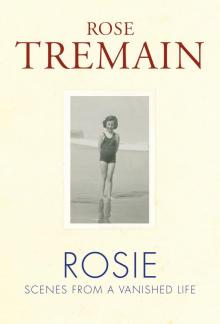 Rosie
Rosie The Garden of the Villa Mollini
The Garden of the Villa Mollini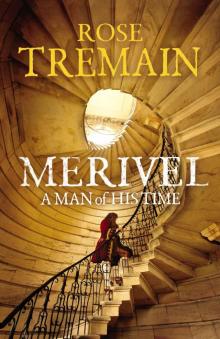 Merivel: A Man of His Time
Merivel: A Man of His Time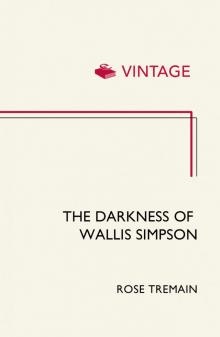 The Darkness of Wallis Simpson
The Darkness of Wallis Simpson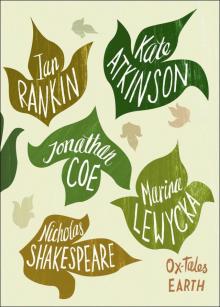 Earth
Earth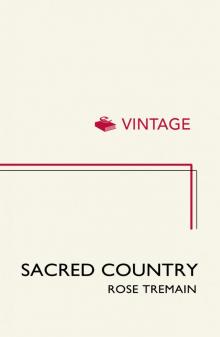 Sacred Country
Sacred Country The Swimming Pool Season
The Swimming Pool Season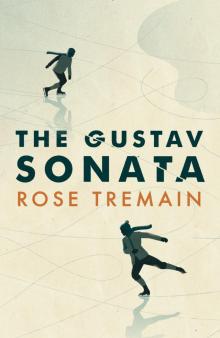 The Gustav Sonata
The Gustav Sonata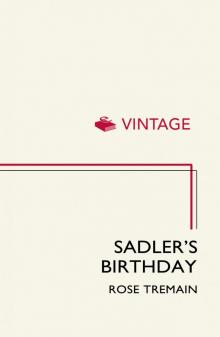 Sadler's Birthday
Sadler's Birthday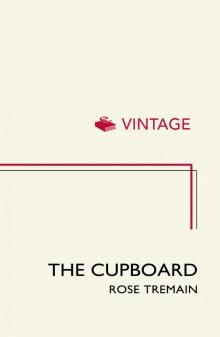 The Cupboard
The Cupboard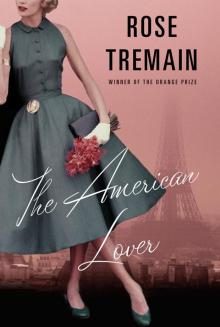 The American Lover
The American Lover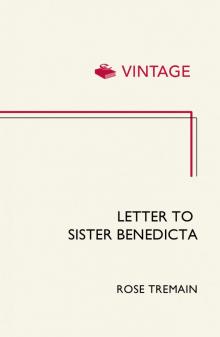 Letter to Sister Benedicta
Letter to Sister Benedicta Evangelista's Fan
Evangelista's Fan Restoration
Restoration The Road Home
The Road Home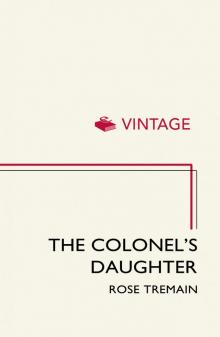 The Colonel's Daughter
The Colonel's Daughter The Way I Found Her
The Way I Found Her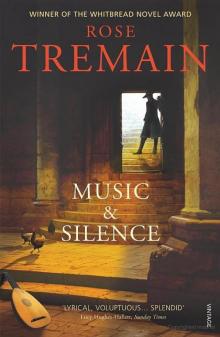 Music & Silence
Music & Silence